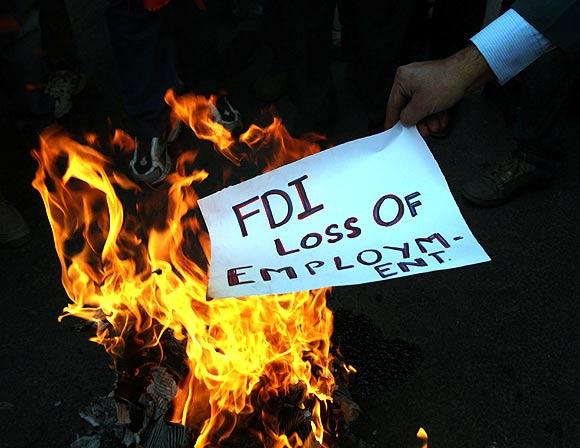
Congress can initiate moves that please it -- and any alliance partner can choose to oppose them also. That is a recipe for chaos, warns A K Bhattacharya
In the last fortnight or so, India's political class has shown that it refuses to change, or recognise the need for change.
Consider the following. In a desperate attempt to resume economic reforms, top leaders of the government decide that it should allow foreign direct investment or FDI in multi-brand retail. So, the Union Cabinet approves a proposal, even while Parliament is in session, to allow 51 per cent foreign equity in multi-brand retail and raise the FDI cap in single-brand retail from 51 per cent to 100 per cent.
The government justifies its decision on the ground that FDI policy for retail is outside the purview of Parliament. While the proposal can be debated in the Lok Sabha or the Rajya Sabha, there is no need for prior approval of Parliament before announcing the decision, argues the government.
Click on NEXT for more...
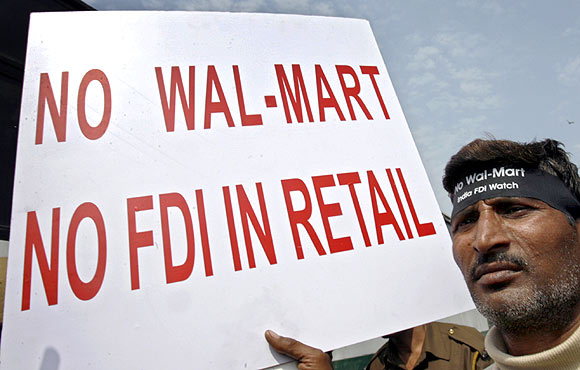
Yet, a major controversy erupts and the government backtracks, keeping the FDI decision in abeyance. So, why has the issue snowballed into a major political controversy?
There are many reasons and one of them certainly is that that the top Congress leaders refuse to recognise that running a coalition government is quite different from leading a government on your own.
If the Congress is dependent on the Trinamool Congress, the Dravida Munnetra Kazhagam or the Nationalist Congress Party, then it must always take them on board before embarking on any major policy initiative.
It is clear that the Congress' leaders have failed to do that, and paid the price for not having recognised that change.
Click on NEXT for more...
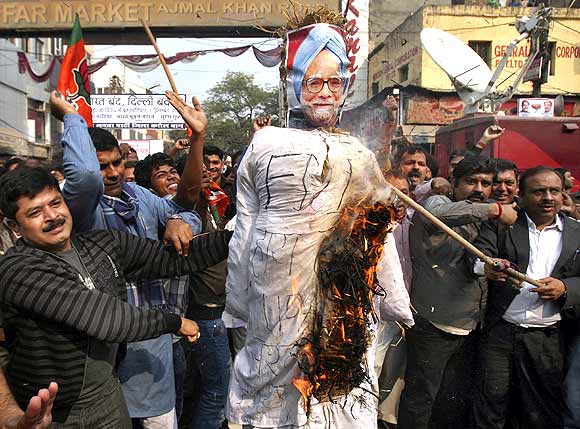
Second, the Congress leadership has also failed to accept that the Left Front is an easier partner to deal with in a coalition government than most other alliance partners. The Left Front can be as difficult as the Trinamool Congress, but it is certainly more predictable.
The reason for this predictability is perhaps the presence of a national common minimum programme, which became the central document for the first United Progressive Alliance government that took office in 2004. Without a common minimum programme, the Congress can initiate moves that please it -- and any alliance partner can choose to oppose them also. That is a recipe for chaos.
Third, the Congress' argument that it is within its rights to take an executive decision as long as it does not require a legislative change may be the correct legal position, but that is not how it works in practice.
The government would not have lost its authority or the right to rule if it had consulted key Opposition political parties on the retail FDI issue and gauged their mood before going to the Cabinet for a decision.
Click on NEXT for more...
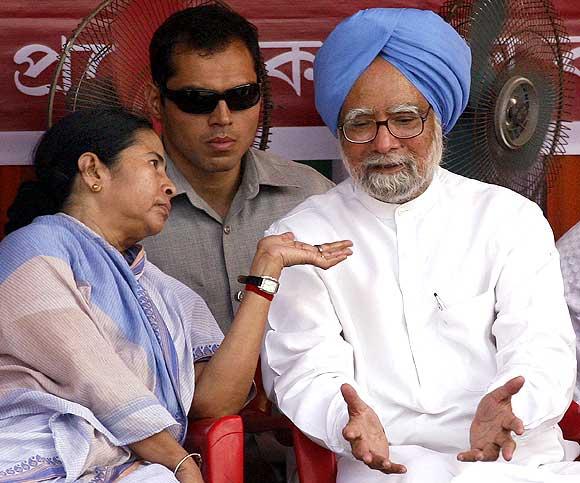
Most likely, the Opposition would have rejected the FDI proposal, but the Congress would have retained the moral high ground by seeking other views before making up its mind.
What happened in July 1991, when industrial licensing was scrapped through a notification, was unusual because of the magnitude of the economic crisis the country faced then.
No Opposition political party -- not even the Left -- opposed that decision by a minority government, led by P V Narasimha Rao, beyond a point, simply because none of them wanted another election.
Today, it is the other way round. Soon after announcing the decision to hold back FDI in retail, Finance Minister Pranab Mukherjee said the government backtracked because it did not wish to push the country to a mid-term election.
Click on NEXT for more...
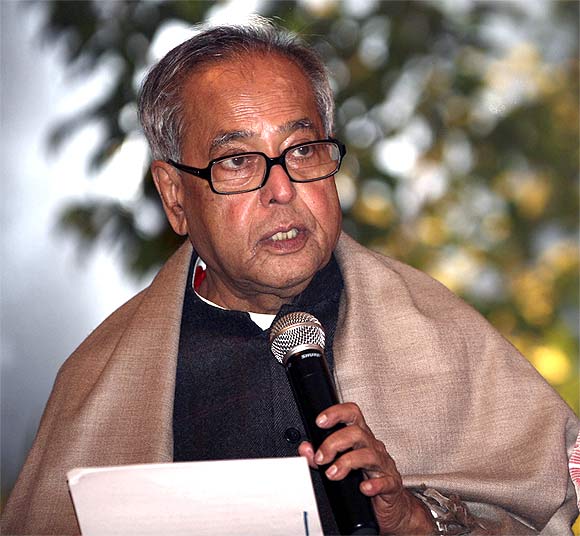
What did that mean? Was the Congress' commitment to reforms not strong enough?
Did the Congress realise that, with charges of corruption and policy stasis all around, it was politically not in a strong position to face the electorate at this time? Or did it mean that the Congress knew that reforms could not win it elections and hence it was suicidal to let the government fall on this issue?
That perhaps is the most disturbing aspect of the entire controversy. It is not just the Congress; most political parties are extremely reluctant to support reforms if it also means giving up populist vote-bank politics.
So, giving oil marketing companies the freedom to fix petroleum product prices may be the right thing to do, but no political party would like to come out in support of this basic move because doing so might lose it votes.
Click on NEXT for more...
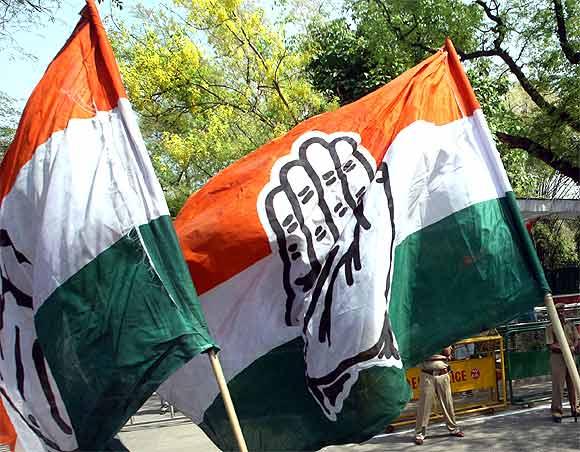
Not forcing pension funds to give assured returns on their investments in equity-linked instruments is a sensible policy, but political parties still make public statements on why there should be assured returns for all pension funds. Once again, the goal is to woo the voter even if it means following bad economic policies.
The Congress leadership appears to have lost the political courage to move ahead with economic reforms as it fears the adverse electoral consequences they may entail.
The Bharatiya Janata Party, the Left parties and several other parties like the Trinamool Congress and DMK see in this situation a big opportunity to strengthen their position.
It's true that this might help them win a few more seats in assemblies or in Parliament, but there are serious doubts as to whether such politically-motivated policies can do any long-term good either to them or to the country.
A nation needs a political class to run its democratic institutions. But that political class also needs to understand and respect its commitment to what is good for the nation. The country needs politicians who are also statesmen.
Click on NEXT for more...